I Came Out As Trans At 63. People Ask Me Lots Of Questions, But There's 1 That Scares Me Most.
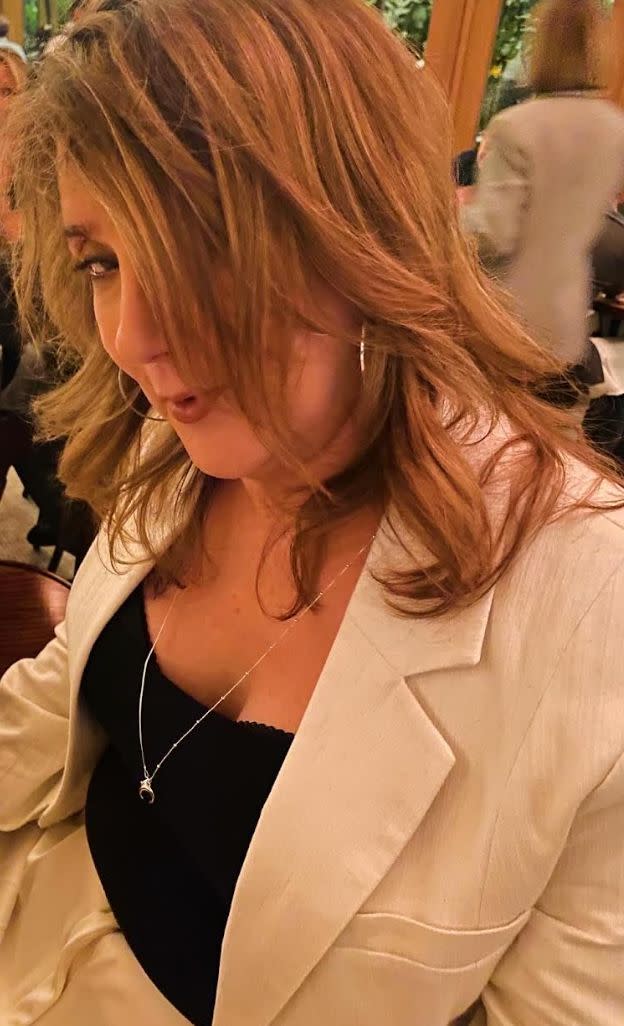
You’ve no doubt never heard of “trans bingo,” but it became my game of choice not long after I came out as trans last spring at the age of 63. It was my way of coping with something about transition that I should’ve expected but never suspected.
Since I was more often than not the first trans person that friends, family members and complete strangers had ever actually spoken to, they all had questions. Lots and lots of questions. “When did you know?” “What parts have you had either removed or added?” “What are you into now, chicks or dudes?” “Is that your real hair?” And so many more.
These queries tumbled out with such regularity, it became a bit of a struggle to answer them without feeling overwhelmed and sometimes even annoyed. Then, after having dinner with a friend I hadn’t seen for years (who just kept repeating “What the fuck, dude?” throughout our meal), I came up with “trans bingo” to keep from weeping openly, when the relentless questioning left me feeling like I was being othered into a caricature. Once anyone asked me five of these routine questions in a row, I’d yell “Bingo!” — at least in my head. It helped me to take a step back, catch my breath and refocus myself.
I’ve started to feel like trans people are the gender equivalent of Bitcoin: We’ve both been in the news a lot these past few years; our existence isn’t easy for people to comprehend; and people are constantly clearing their browser history so nobody will know they’ve been searching for information about us.
I looked at my future and all I could see was myself constantly explaining my existence and feeling othered, even if people were quizzing me with the best of intentions.
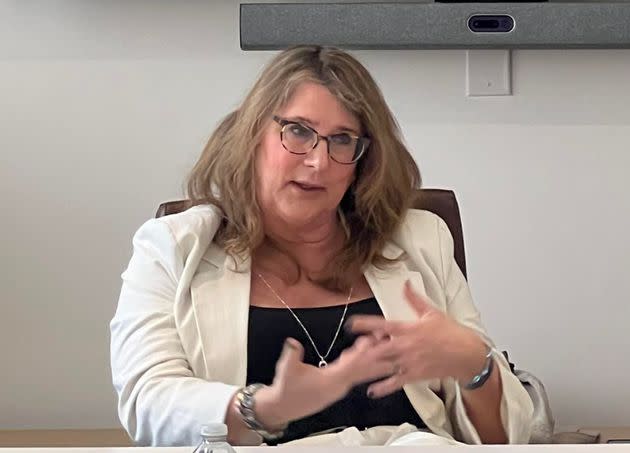
I knew transitioning wouldn’t be easy, but I never imagined it as being akin to that note near the end of the chorus of A-ha’s “Take On Me.” You’re sure you can nail it, but when you finally try it, the end result is not at all what you hoped it’d be.
The cultural invisibility I’d enjoyed during my days of white cis straight male privilege — when I could easily blend in anywhere without worrying about how I was perceived — was gone now that I’d revealed my true trans self. Don’t get me wrong, I have less than zero regret about coming out, but after six decades of being as anonymous as I wanted to be, it’s strange to now feel on display in any room I walk into.
I’m well aware that working in show biz and living in Manhattan and wearing size nine shoes all make my transition situation different from that of so many other trans people, struggling in Ohio or Missouri or without the other privileges I have. Every day, I wake up to stories like the one letting me know at least 10 states are currently trying to keep trans people from updating driver’s licenses, holding public office or using any public restroom, essentially erasing our right to exist. That’s on top of the hundreds of anti-trans bills oozing through dozens of state legislatures. And don’t even get me started on Texas Attorney General Ken Paxton seeking the medical records of Texas juveniles who went to other states for gender-affirming care. With so much hatred towards my community, it’s no surprise hate crimes based on gender identity rose nearly 33% in 2022 or that at least 53 trans people were killed and at least 32 died by suicide in 2023. Black trans women are, and have historically been, disproportionately impacted by violence.
Considering that only about 1.6 million Americans older than age 13 are transgender, according to a survey from the University of California, Los Angeles, all of this fearmongering about people who are simply trying to live the life they feel is true and not the one everyone else expects seems... misplaced. Other than indulging in the exhilarating rush that apparently comes with raging at anyone who isn’t exactly you, I’m not quite sure what the transphobes’ endgame is. I know it’s got something to do with a fear of “grooming,” but the only time I’ve groomed a child is when I used to take my son for his haircuts.
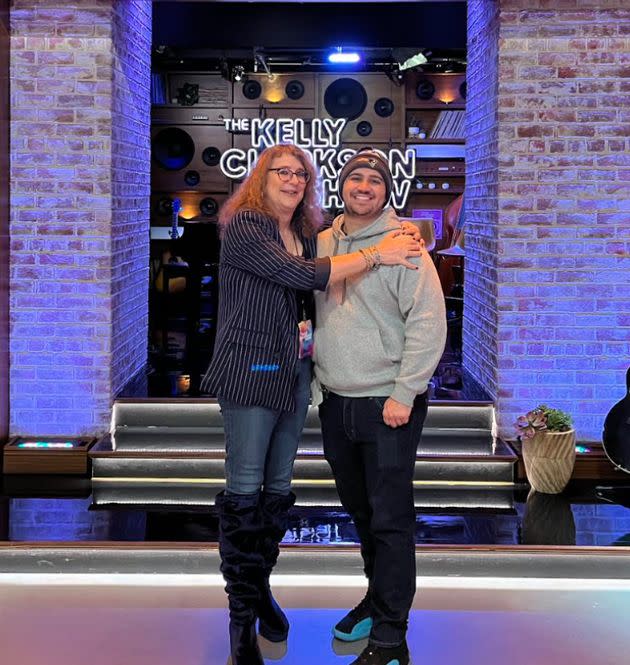
There’s also panic about trans people using public restrooms but seriously, nobody — trans or otherwise — wants to spend one minute longer than they have to in a public bathroom. I mean, you’ve seen them, right? I hate to say it but I think there are several people in this world who are the grownup version of Third Grade Dave, the bully who liked to beat me up after school for no other reason than he was a bully who liked to beat me up.
Despite all of this, there have been some fantastic, identity-affirming benefits to finally living my life on my own terms at 64. I now get to wear some pretty fabulous blazers and dresses instead of hiding myself in a baggy t-shirts and jeans like I’m a 12-year-old boy. Oh, and I can bask in the sort of personal, meaningful, emotional conversations women engage in (as opposed to guy discussions that use surrogate topics like sports or politics or beer to represent whatever it is they’re really thinking and feeling). Best of all, after I wrote about my recurring childhood dream of becoming a little girl so I could play with Tabitha Stephens from TV’s “Bewitched,” Erin Murphy, the actress who played her, got in touch with me.
Still, I’m constantly shocked when I find myself in situations where I’m that car accident you can’t help but gape at as you cruise past. There was the salesperson at a well-known clothing store who asked for my ID when she didn’t really need it, then stared at me for a solid 30 seconds before walking over to a fellow employee to show her my license and point at me. There’s definitely been more than one mom on the subway who yanked her child to the other end of the train when she saw me get on board. And who could forget the couple wearing matching “Let’s Go Brandon” T-shirts who followed me through the grocery store while pointing, whispering and snickering?
All this contempt from people who will never meet me crystallized after I helped produce a Trans Awareness Week episode for the talk show I work on. It concluded with me coming on as a guest, talking about my AARP-era transition and assuring anyone terrified of coming out that I am so much happier than I was before I began living my new life.
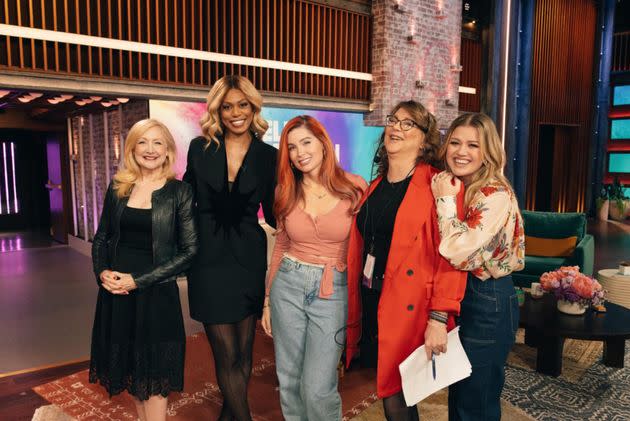
A video clip of my appearance went viral, and I quickly learned that what I considered to be self-care was instead seen as selfish by plenty of others, including several people who had previously been close to me. The positive commentary far outweighed the negative. Nonetheless, I heard from too many people who had many other choices for killing time — watching some Netflix, reading a book, yelling at the neighborhood kids to get off their lawn — yet instead chose to anonymously hate someone they’ve never met. This resulted in them posting things like:
“So sad. Buy into the delusion.”
“Congratulations on creating a place where males with autogynephilia can act out their fetish in public and make everyone around them be part of it WITHOUT consenting to it.”
“Quit celebrating severe mental illness.”
“Platforming a perfert (sic). This is a mentally ill man.”
As horrific as comments like these are, they will still never get me pining for my pre-Caragh days. (Memo to the New York Times and Fox News: trans regret isn’t what you think it is.)
However, they did prompt me to reconsider the “trans bingo” question that always scared me the most: “Is your life better now?”
I dislike it for a couple of reasons. First, the answer is incredibly nuanced and depends entirely on what hour of the day I’m asked it. Second, contemplating the question is terrifying, because what if the answer is “no”? I’ve lost friends, money, status, reputation and so much more for what appears to be nothing more than a weird fetish to much of the world.
Ironically, this was the same question I was asking others a few years ago, when I drove 10,000 miles across the country to meet a bunch of ordinary Americans who decided to run for president. You’ve probably seen one of these people before, when they’re featured in a 30-section segment at the end of the local news broadcast and the anchors chuckle at their ambition. I was writing a book about these people because I’d always been fascinated by these their inexplicable interest in doing something that will cost them their life savings — and potentially their friends and family and reputation — even though they knew there was no chance they’d win.
Everyone I met on my trek, from the senior citizen Hell’s Angel in Idaho to the Florida Vietnam vet dying from Agent Orange exposure to the closeted Arkansas mom struggling to support her severely disabled son, thoughtfully explained that running for president wasn’t something they wanted to do. It was something they had to do. And when you have a desire like that burning in your heart, you’ll do anything to keep it ablaze.
That’s how I think about being trans. So many people get so much wrong about what it means to be who I am. At its heart, transitioning isn’t about my sex bits or my wardrobe. It’s about self-determination. It means tuning out all the outside noise so I can hear that Whoville-sized voice inside of me screaming, “Help!” People can have endless misdirected conversations about what a woman really is, but at the end of the day, this journey is about becoming the person I have always known I am while I still have time to celebrate my life (which I’ve heard through the grapevine is actually kind of a good thing).
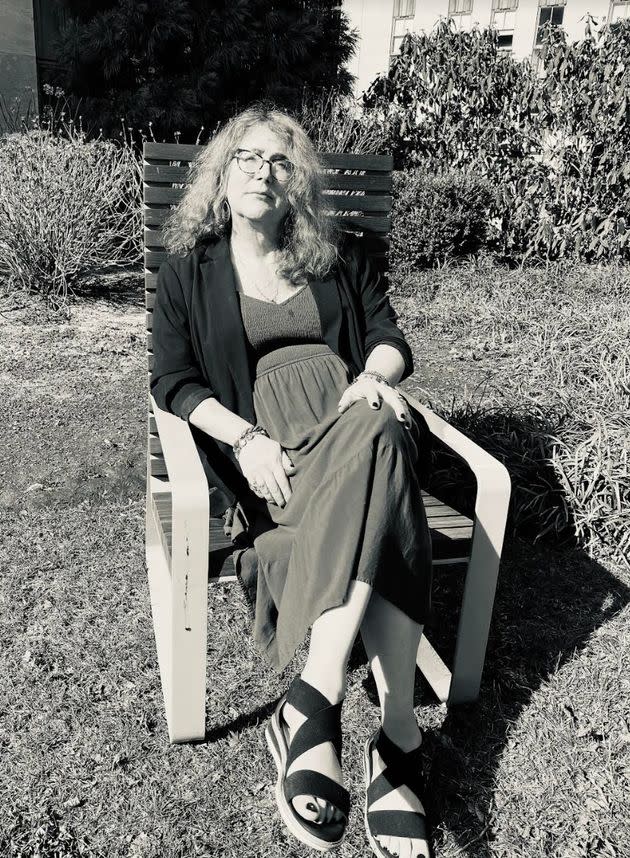
Since I came out last year, I’ve been automatically scanning the eyes of every person within 50 feet of me in order to try and gauge what they’re thinking. I nervously hope I blend in, yet the whole point of transition is to show the world who I truly am. Wanting to be seen yet fearing that you’ll be noticed is incredibly stressful, even when spending time with people you know. I suppose the trick is to stop worrying about what others think, but that’s tough in a world where some folks resent people like me just drawing breath, and even allies still ask “trans bingo” questions.
The superhuman self-confidence it can take to keep going has frequently eluded me over the last 12 months. As grateful as I am to now be living as my truest self, there are days when everything feels hard. Sometimes too hard.
Still, there are moments that give me strength. Recently, when I was out on a walk, I encountered an older woman. She was being pushed along in a wheelchair by her nurse and, as I got closer, her shock of white hair and “you call that music?” glower reminded me of the elderly people in the audience at a MAGA rally.
As I walked past her, I braced myself for a “Hello, sir,” or “What the hell are you?” I mumbled a “hello” toward the sidewalk and kept moving until I heard her call out, “I’m sorry to bother you, miss, but where did you get that coat? It’s beautiful!” I stopped, turned around and smiled, and we spent several minutes talking about my H&M overcoat and the approaching snowstorm. It was a quick, fairly surface-level chat, but it left me with this weird feeling that I think the kids are calling “hope.”
I’d been judging this woman strictly by her appearance while I was fretting about the world doing the exact same thing to me. I realized that not everyone is out to get me and, on a larger scale, that so much of the hate that trans people face is because people don’t know anything about us.
No, I shouldn’t have to educate people about my life and, no, people shouldn’t have to understand me, much less like me, to treat me fairly and humanely. But if I have the answers to someone’s questions — no matter how basic or complicated or misguided or exhausting — maybe I can help change some minds. Maybe I can be a good trans ambassador for those willing to learn, as well as for those who prefer to mock us on Netflix specials, and maybe that can do some good — not just for my community, but also for myself.
As I walked away from this lovely woman, I was excited by my new point of view, and one word perfectly captured the feeling: Bingo!
Caragh Donley is no longer hiding her age, so it’s safe to reveal she’s been at this writing thing a long time, working for outlets including People Magazine, TV Guide, the New York Times, the Los Angeles Times, the Boston Globe, Emmy Magazine and Vanity Fair. She’s the author of “The Can’t-idates: Running for President When Nobody Knows Your Name.” In addition to her print work, she’s worked as a producer on shows including VH1’s “Behind the Music,” “The Queen Latifah Show” and “The Martin Short Show.” She is currently a three-time Emmy-winning senior producer with “The Kelly Clarkson Show.”
Do you have a compelling personal story you’d like to see published on HuffPost? Find out what we’re looking for here and send us a pitch at pitch@huffpost.com.

